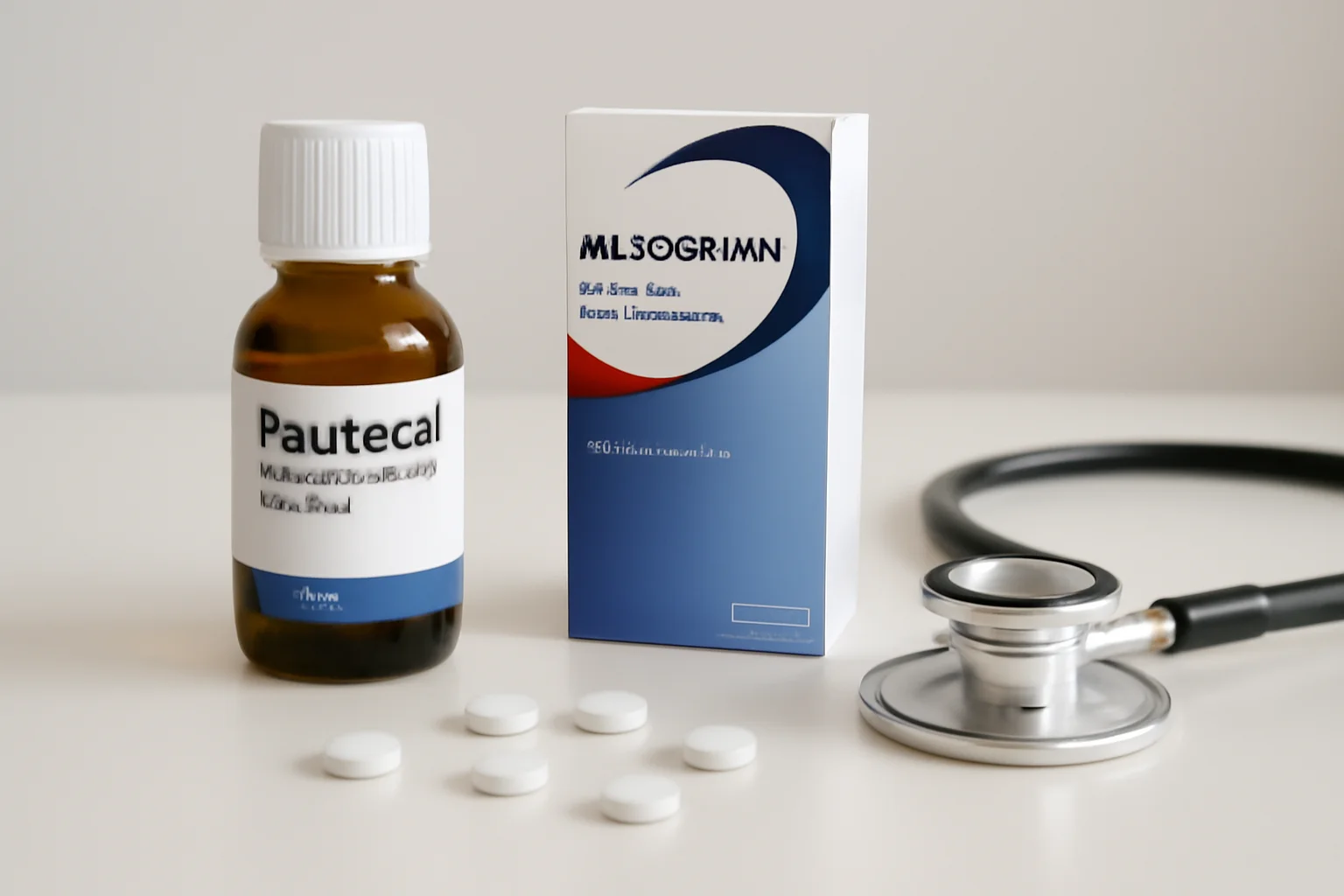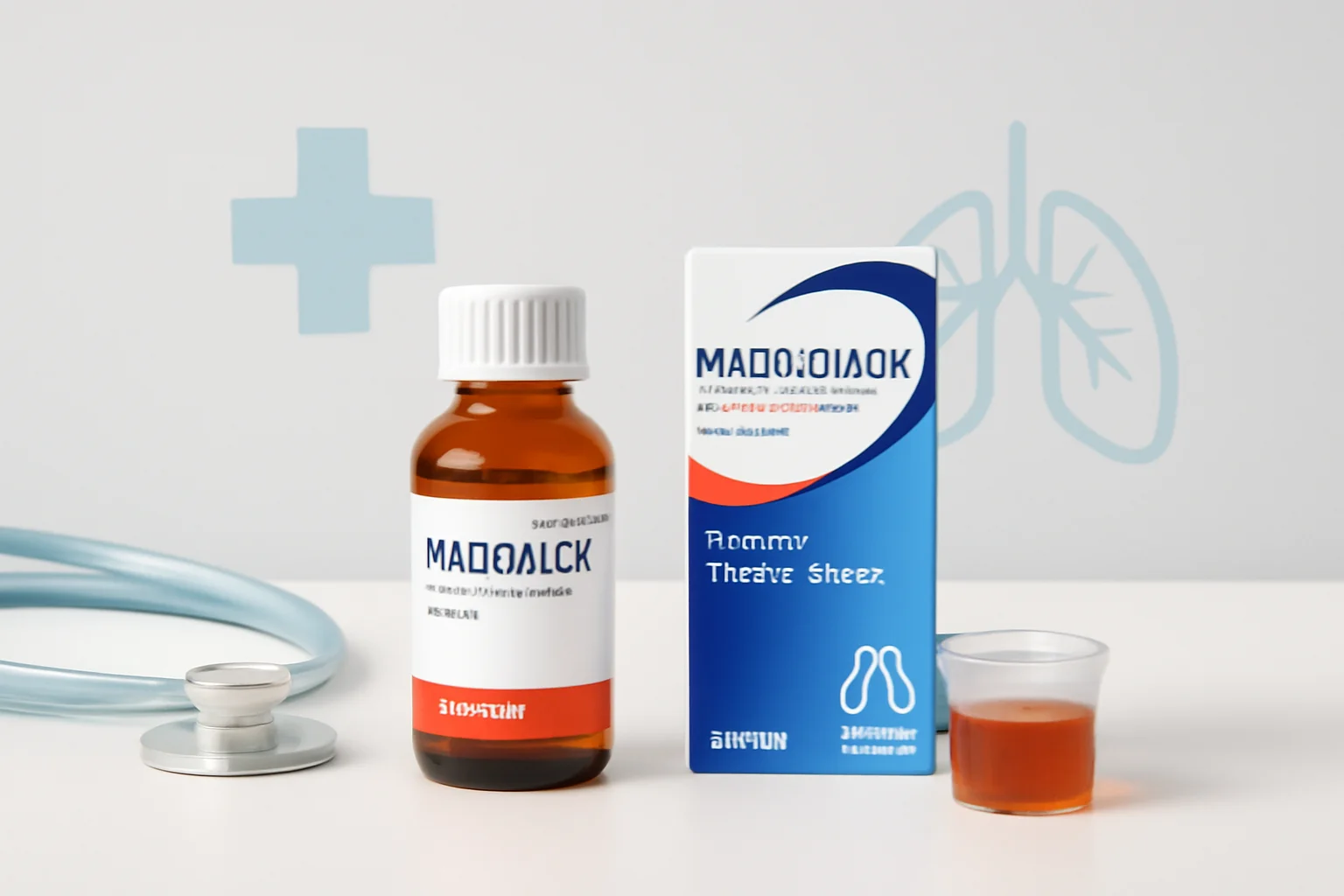
Paxirasol and Mucosolvan: When is it advisable to use them?
Respiratory illnesses, such as colds, bronchitis, or pneumonia, can significantly affect the lives of many people worldwide, especially during the cold months. These diseases often come with symptoms like coughing, difficulty breathing, and mucus buildup, leading to uncomfortable and disruptive effects. Choosing the right treatment and medications is crucial for the recovery process. This is where cough suppressants and expectorants come into play, helping to alleviate symptoms and clear the airways.
There are numerous medications available on the market, among which one of the most popular is Paxirasol, while another is Mucosolvan. Both products can effectively assist in treating respiratory illnesses, but they have different ingredients and mechanisms of action. It’s important to consider the nature of the symptoms, the individual needs of the patient, and the effects of the medications when making a choice. Below, we will examine the properties of Paxirasol and Mucosolvan in detail to help you make the best decision.
Paxirasol: Mechanism of Action and Application
Paxirasol is a medication primarily used to suppress coughing and relieve irritation in the airways. Its active ingredient, butamirate citrate, acts on the central nervous system to reduce the cough reflex, thus aiding in the treatment of dry cough. Paxirasol can be particularly useful in cases where coughing is disruptive and interferes with daily activities, such as during sleep.
The application of Paxirasol is straightforward: the medication is available in syrup or tablet form, and the dosage depends on the patient’s age and the severity of the symptoms. Different dosing is recommended for adults and children, so it is important to review the patient information leaflet thoroughly or consult with a doctor to determine the appropriate dose.
Patients generally tolerate Paxirasol well, but as with any medication, side effects can occur. The most common side effects include dizziness, drowsiness, or gastrointestinal discomfort. It is essential to pay attention to your reactions during use, and if any unusual symptoms occur, to inform your doctor immediately.
Thus, Paxirasol can be an effective solution for treating dry cough, but it is crucial to be informed about possible side effects and the method of application to best support your recovery.
Mucosolvan: Expectorant Effect and Benefits
Mucosolvan, also known as ambroxol, is a medication used to thin mucus in the airways and facilitate its removal. This medication is particularly useful in diseases such as bronchitis, pneumonia, or other respiratory illnesses where mucus production is increased. The mechanism of action of Mucosolvan involves enhancing the functioning of the airway mucous membranes, promoting mucus clearance, and easing breathing.
Mucosolvan is available in various forms, including syrup, tablets, and inhalation solutions. The method of application depends on the patient’s age and the severity of the disease, so it is important to review the patient information leaflet thoroughly. For adults, syrup or tablet forms are advisable, while syrup may be the most convenient option for children.
Patients generally tolerate Mucosolvan well, but as with any medication, side effects can occur. The most common side effects include abdominal pain, nausea, and, rarely, allergic reactions. If any unusual reactions occur, it is important to consult a doctor.
Therefore, Mucosolvan can be an excellent choice for mucus clearance and airway cleansing, especially in cases where cough is productive and mucus removal is necessary. Due to its effectiveness and breathing assistance, many choose this medication for respiratory illnesses.
Paxirasol and Mucosolvan: When to Choose Which?
Choosing between Paxirasol and Mucosolvan is not always a simple task, as both medications have different mechanisms of action and are suitable for treating various symptoms. It is important to consider the type of cough and the patient’s condition when making a choice.
If the cough is dry and irritating, disrupting daily activities and sleep, then Paxirasol may be the right choice. This medication effectively reduces the cough reflex, helping to alleviate symptoms. It can be particularly useful for those who cannot tolerate disruptive coughing.
On the other hand, if the cough is productive, meaning the patient is producing mucus, then Mucosolvan is recommended. This medication helps to thin the mucus and facilitates its clearance, thus improving breathing. Mucosolvan allows for airway cleansing, which is especially important in cases of bronchitis or pneumonia.
It is important to note that combining the two medications can also be beneficial in certain cases, but this should always be determined during a medical consultation. The best solution is chosen based on individual symptoms and conditions, taking the doctor’s advice into account.
Thus, the choice between Paxirasol and Mucosolvan is closely related to the type of cough and the individual needs of the patient. It is always advisable to consult with a doctor to make the best decision during treatment.
Attention! This article does not constitute medical advice. In case of health problems, always consult a doctor and follow their recommendations!

